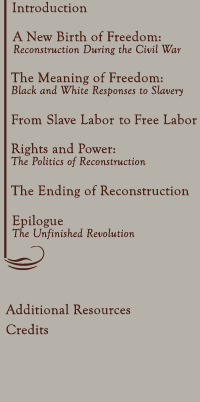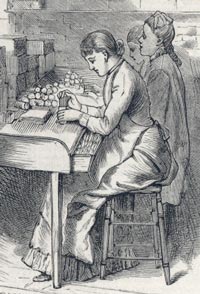








Free Labor
The postwar South remained overwhelmingly agricultural. The implements of work were the same as before the war, but relations between planters, laborers, and merchants had changed forever.
As under slavery, most rural blacks worked on land owned by whites. But they now exercised control over their personal lives, could come and go as they pleased, and determined which members of the family worked in the fields.
In early Reconstruction, many black women, seeking to devote more time to their families, sought to withdraw from field labor, a decision strongly resisted by plantation owners.
Children, whose labor had been dictated by the owner under slavery, now attended school.
 |
As
a result, landowners complained of a persistent "labor shortage"
throughout Reconstruction, another way of saying that free labor could
not be controlled as rigidly as slave labor. Some urban growth occurred during Reconstruction, both in cities like Richmond and smaller market centers scattered across the cotton belt. Cities offered more diverse work opportunities for both black and white laborers. |
Copyright
2003